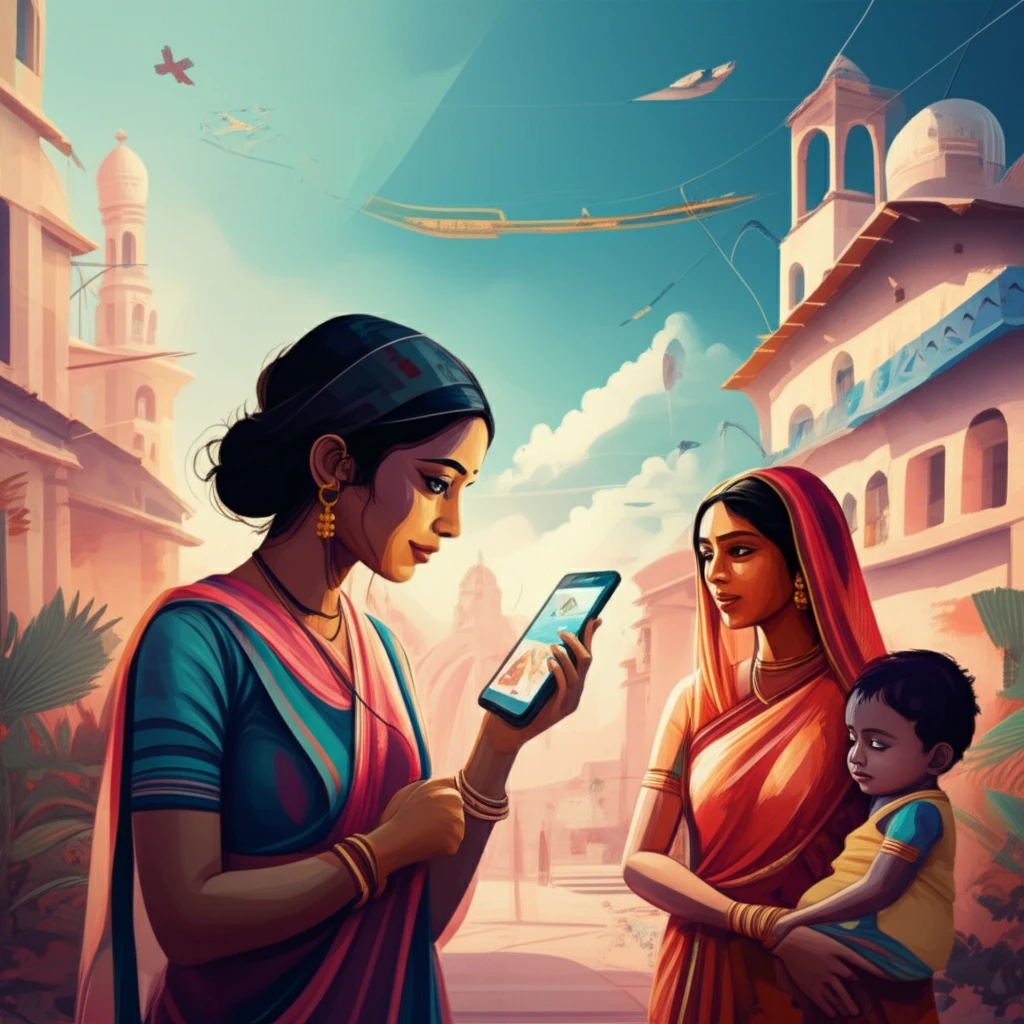
Can Mobile Health Boost Community Care? How mHealth Impacts ASHAs in Rural India
"Explore how mobile health interventions are reshaping community healthcare in rural Gujarat, India, enhancing the skills and knowledge of frontline health workers."
India faces significant challenges in maternal and child health, accounting for a substantial portion of global maternal and child deaths. To combat these issues, the National Rural Health Mission (NRHM) was launched in 2005, with Accredited Social Health Activists (ASHAs) playing a crucial role in bridging the gap between healthcare services and rural communities.
ASHAs are community health workers trained to provide essential healthcare services, create health awareness, and mobilize communities for local health planning. They are equipped with basic medicines and act as a vital link in the healthcare delivery system. However, ongoing capacity building and refresher training are essential to ensure they can effectively perform their duties.
Recognizing the potential of mobile technology to overcome these challenges, a study was conducted to evaluate the effectiveness of an mHealth intervention. This intervention, known as ImTeCHO (Innovative Mobile Health Technology for Community Health Operations), aimed to improve the knowledge and skills of ASHAs in maternal, newborn, and child health (MNCH) care.
How Does mHealth Improve ASHA Performance?

The ImTeCHO intervention involves providing ASHAs with mobile phones equipped with a custom application that includes health education videos, diagnostic algorithms, and training tools. The application helps ASHAs in several key areas:
- Scheduling and Reminders: Automatic alerts via mobile phones help ASHAs schedule and remember visits to infants and mothers.
- Task Management: Reminders ensure all essential tasks are performed during home visits.
- Health Education: Inbuilt health education videos facilitate effective counseling and behavior change communication.
- Diagnostic Support: Algorithms aid in diagnosing high-risk low birthweight (LBW) infants and creating treatment plans.
- Knowledge Updates: Regular audio and video lectures update ASHAs on best practices.
- Helpline Access: Access to the ImTeCHO helpline provides support for improving skills and knowledge on MNCH care.
Looking Ahead: The Future of mHealth in Community Care
The study underscores the potential benefits of mHealth interventions in enhancing the capabilities of ASHAs and improving healthcare delivery in rural India. By providing access to essential information, training, and support through mobile technology, ASHAs can more effectively address maternal and child health challenges in their communities. As mobile phone access continues to expand, mHealth strategies hold promise for overcoming implementation challenges and ensuring a well-trained health workforce at scale. Further research is needed to explore enhanced interventions, including text messages, free voice calls, and comprehensive call center support, to maximize the impact of mHealth on community healthcare.
